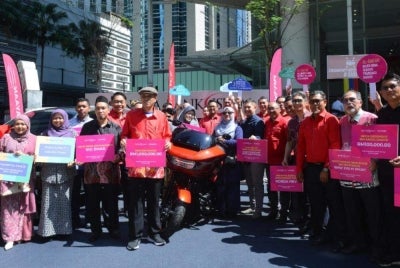Most Malaysian SMEs Unconsciously adopt ESG practices

KUALA LUMPUR - Most small and medium enterprises (SMEs) in Malaysia are unconsciously adopting environmental, sustainable, and governance (ESG) practices, according to Grant Thornton Malaysia.
These practices would include going paperless, using mugs instead of plastic or paper cups, reducing carbon emissions by saving electricity, and encouraging staff to track their own carbon footprints, said country chief executive officer Kishan Jasani.
"In fact, employee well-being is also an emerging ESG concern for companies and investors (and) this is being addressed through initiatives such as flexible working hours and internal wellness programmes.
"Most SMEs are heading in the right direction as they believe that committing to ESG practices can create long-term value, foster a strong workforce and lead to increase business opportunities,” he told Bernama recently.
Jasani said that based on the accounting firm's survey last year involving more than 5,000 SMEs around the world, one out of five SMEs aimed to contribute to the net-zero target.
"The main motivations identified for adopting such practices were to improve productivity, achieve cost savings and enhance brand reputation,” he said.
Moreover, he noted that the nature of ESG would evolve in response to global changes, underscoring its growing importance for innovation, business resilience, and sustainable growth.
"Based on Grant Thornton International Business Report 2022, two-thirds of the companies required to produce a sustainability report had already done so for scope one and two greenhouse gases (GHG) emissions.
"However, only one-third of the companies are reporting on scope three GHG emissions, while 75 per cent of mid-market companies are not reporting due to their unfamiliarity with this area and lack of knowledge regarding the value chain.
"I believe that with assistance from regulators such as the Companies Commission of Malaysia and Bursa Malaysia, more companies will undertake reporting and receive clearer guidance to improve their practices,” said Jasani.
Meanwhile, United Nations Global Compact Network Malaysia and Brunei (UNGCMYB) programmes and SME Centre of Excellence director Shanta Helena Dwarkasing said SMEs would be welcome to assess their climate action readiness level via UNGCMYB’s climate action programme for the supply chain, namely promoting green, resilient and sustainable SMEs (Pro-Gress) toolkit.
"The programme, in collaboration with Alliance Bank, also provides SMEs with peer benchmarking, getting a customised climate transition action plan and tapping into the ecosystem to improve climate resilience.
"Besides that, they can also access our SME ESG Hub website to get a comprehensive guide and resources on achieving ESG practices for beginners.
"The hub consists of four gateways in which they can access the various resources, namely to inspire, plan, act and communicate on their ESG journey,” she added. - Bernama
Download Sinar Daily application.Click Here!














